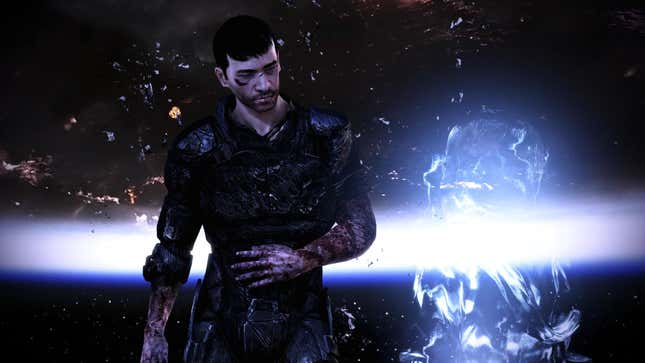The original Last of Us’ ending is widely considered a “moment” for narrative in video games, but after the sequel came in and knocked it off a shelf and said, “no, we’re going to actually examine the ramifications of what just happened instead of making it this untouchable, crystalized thing,” I mostly think of it as a prologue to something more profound.
The Last of Us Part II can sometimes seem like a senseless exercise in violent excess. It deliberately walls you off from the motivations of Ellie as she travels through post-apocalyptic Seattle in righteous fury. It makes you play as the woman she came to kill and paints her as a sympathetic victim in actions you once carried out as Joel in the original game. Then when you’ve seen all these truths finally uncovered, it asks you to, once again, engage in Ellie’s revenge tour because she is not satiated.
It’s easy to dismiss Ellie’s final bout of revenge-driven violence in Santa Barbara, one that comes at the expense of her family, as a regression of her character. I, the player, have seen the truth of why Abby killed Joel in the opening hour. Why doesn’t Ellie see what I, the omnipresent observer of this entire situation, have seen? Why can’t she simply do what I want?
Well, The Last of Us isn’t about you, and Ellie has had her own agency ripped from her by a pack of infected biting her and her first love, Joel denying her the chance to be the cure, and Abby beating her within an inch of her life as she sought revenge. Ellie’s story is one of constantly having to do what is demanded by others and circumstance, rather than getting to make her own decisions. So it’s important that, rather than simply putting her pain down because that’s what others want, she has to make that decision for herself.
The Last of Us Part II ends with a violent clash between Ellie and Abby that, even when you win the fight, Ellie makes the decision to let her go. In a moment of clarity, Ellie realizes that this grief she’s been carrying with her won’t go away by killing Abby, and that the only way she can actually move forward is to forgive not Abby, but Joel. She returns to her farm in Wyoming, tries to play the guitar Joel gave her, but can’t because Abby took her fingers in the scrap. She remembers her and Joel’s last talk, where they argued over his violent actions at the end of the first game, denying her the chance to save humanity. But when he tells her he would still, after having seen the fallout of his actions, choose to save her life, she’s left with a choice. Hold onto this anger towards someone she loves, or put it down of her own volition. She never gets quite to that point, but she leaves with the hope that she might one day.
That day finally comes in the very final scene. Ellie leaves the guitar Joel gave her at the farm and heads out into the Wyoming wilderness. We don’t know where she’s going, but we know where she’s been. To me, this is the hopeful actualization of everything The Last of Us put forth with both games. Where the original game ended on uncomfortable uncertainty, Part II ends with some version of peace for everyone involved. It was never about violence. It was never about revenge. It was about forgiveness. — Kenneth Shepard
Buy The Last of Us Part II: Amazon | Best Buy | GameStop | Target
